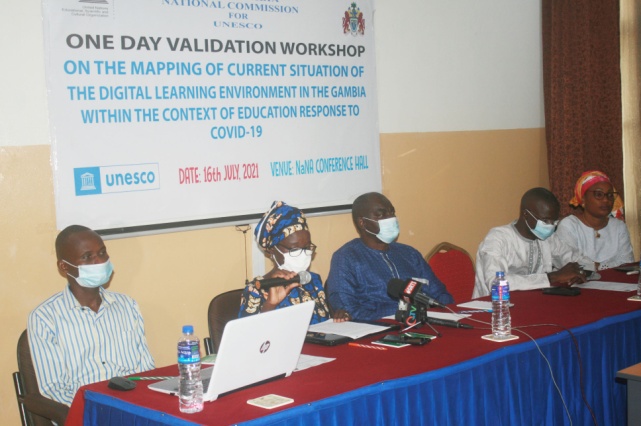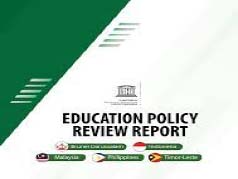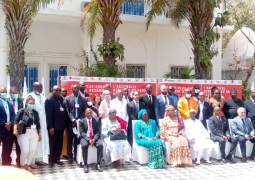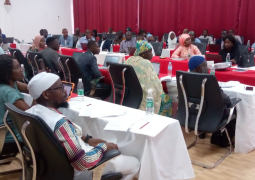
The validation forum, sponsored by Unesco, was held at the NaNA Conference Hall, Bakau and it brought together great number of stakeholders who deliberated on the draft report before the validation.
Declaring the forum open, Momodou Jeng, director of Curriculum Research Evaluation Directorate (CREDD), highlighted some of the MoBSE interventions regarding the use of technology in Gambia’s education system.
In 2016/2030 Revision Policy “we have made commitment to use technology to complement the face-to-face traditional teaching and learning in The Gambia and since this commitment, we have had series of initiatives, as they started piloting the use of technology in some cluster areas in 2009 and we also established six hubs in the regional offices meant for promoting the distance and blended learning,” he said, while listing some of them.
He added that among others are the uses of tablets for the development of early literacy and numeracy in 2014/2015, use of technology to promote the development of science and mathematics in UBS and SSS in 2012 and the expansion in 2013. English language is now added, while they are now exploring the use of artificial intelligence to track real data on learning.
“So the use of technology for distance and blended learning has been here and that’s why in 2020 when schools were declared closed, MoBSE didn’t find it difficult to come up with the distance learning platform because we already have experience in the use of technology,” he added.
Speaking on behalf of the Unesco-Natcom Secretary General, Ms Maimuna Sidibeh, Principal Program Officer at Unesco-Natcom explained that the study is a mapping of existing learning platforms at national levels which are meant to identify stakeholders to be engaged in digital education teaching and learning activities during Covid-19 and beyond.
According to her, the study adopted both qualitative and quantitative methods and the survey gathered primary data from targeted respondents while the key informant interviews and stakeholder consultations attempted to solicit the views of other key stakeholders and partners.
she also noted that there have been numerous initiatives, processes and practices with features of distance education and remote learning in the education sector, thus helping the country build education resilience and strengthening its capacity to adapt digital learning in emergencies.
Ndeban Joof Ndong, assistant project coordinator UNESCO in The Gambia for Youth Employment TVET Project-funded by KOICA, said many African countries have called on Unesco and other international and bilateral partners for support to elaborate their national Covid-19 response together with related school resumption plans.
According to her, some of these countries also clearly indicated their willingness to involve Unesco to design strategy in providing learning continuity and or second chance education for the marginalised populations and to support teacher capacity building in distance learning, as key pillars of resilience education system.
“As a result, in March 2020, Unesco launched the global education coalition to mobilise international solidarity and innovative solution in ensuring the continuity of learning in member states,” she disclosed.
She added that the coalition developed consortium of projects with UNESCO and the World Bank through financial support from the GPE, joined forces and helped mitigate the immediate and long term impact of Covid-19 pandemic on the education and sector.
“Under this consortium, UNESCO is responsible for supporting specific English speaking countries of West Africa of the West African Region as well as from French speaking countries and in particular with reference to West African region three related interventions,” she further added.
She noted that the main objective of the mapping of the digital learning platform is to support the establishment of the regional learning platform for distance and blended learning on knowledge sharing in the Anglophone west African countries.
The study for The Gambia, she noted, has been completed and the finding and analysis of the study would provide the comprehensive outline of the interventions or innovations regarding digital learning during a crisis period and lessons from the implementation of digital learning strategy during the Covid-19 period.
Siyat Gueye, consultant of the project, thanked UNESCO and The Gambia National Commission for giving him opportunity to contribute his quota to the mapping of the Digital Learning Environment in The Gambia.
He said the consultation has exposed him to different ministries and various regional actors among others, while noting that the report has highlighted very important findings.





